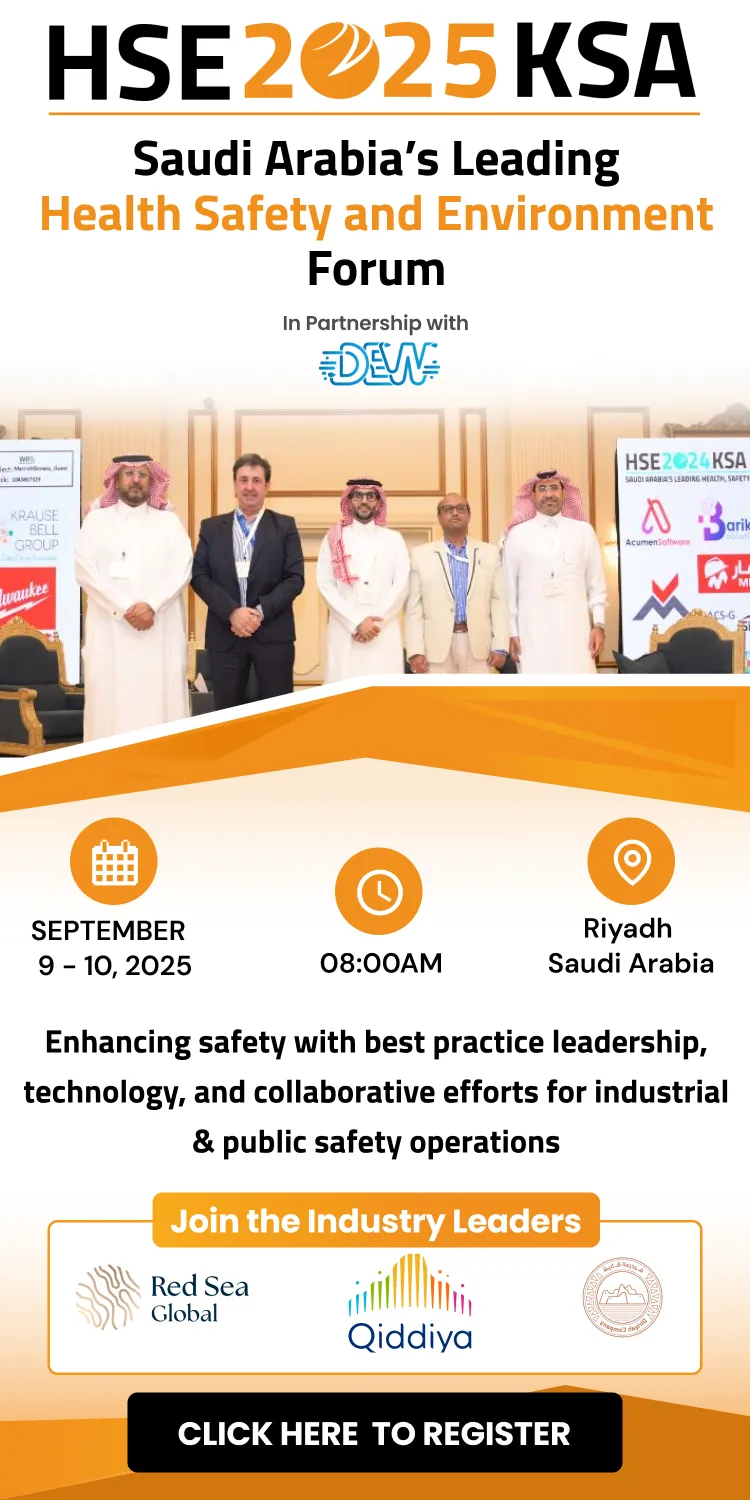Day 2 of the 3rd Annual Health, Safety and Security Forum 2017 highlighted the need for having right legislations in place for workplace safety
Raed Mohammed Al-Marzooqi, head of occupational health and safety, Dubai Municipality, began the proceedings of the day by talking on how to maintain the right workplace station. He mentioned that unless an employee is comfortable, an optimum output is not possible. He stated that risk assessment must be part of sustainability process of companies but unfortunately many do not follow this in organisations. “OSH, to be integrated, must be part of responsibility and HSE must be part of every organisation.”
Waddah S Ghanem, executive director, EHSQ compliance and corporate affairs, Emirates National Oil Company (ENOC) discussed some of the characteristics of high-reliability organisations, and their prioritisation of safety over other goals. A common theme is the monitoring of EHS performance, and he highlighted some of the complexities in monitoring this, and important factors such as influence and accountability, safety leadership, safety culture and management.
A panel discussion ‘Improved approaches to enforce implemented HSE regulations’ put forth various perspectives. Engineer Redha H Salman, director, health and safety, Dubai Municipality, reiterated the fact that it is good to have prescriptive guidelines to adhere to. However, implementation is unique to each industry, whether horticulture or manufacturing. According to Dr Mohammed Aref, OSH expert, Ministry of Human Resources and Emiratisation, “The UAE is a unique market due to the workforce with different backgrounds and languages. There is a standard Labour Law 8 from the 1980s and sub-laws for different sectors. As Redha mentioned, having standards in place is great but we need a different approach for different industries. But there is a gap in compliance because of lack of awareness or commitment.” He added that to get the employers engaged to compliance, the government has to listen to their feedback for challenges and difficulties and find solutions. In the UAE, the federal government is taking a lot of effort to make safety number one and making the labour industry one of the safest.”
The mock court trial by Clyde & Co put into perspective how an investigation process works post a workplace injury or fatality and how to correctly reply to prosecutors in the event of questionings. More often than not, the parties involved take up the moral responsibility for the incident and can incriminate themselves. Dubai Municipality lays down rules for companies to train employees on safety properly.
Afterall, when an accident occurs, all fingers point towards the HSE manager.
Mohammed Farid Ahmad spoke about Dubai Creative Clusters Authority’s (DDCA) strategic policies to ensure the competence of HSE officers in the construction industry and to support and empower them. DDCA conducts workshops for all registered officers to highlight roles and responsibilities as safety officers.
Antecedents influence behaviour only to that extent that they accurately predict consequences. Daryl Wake, secretary, IIRSM UAE Branch, talks about factors understanding and influencing safety behaviour. With the right procedures, LTI can be minimised. Rewarding behaviour will go a long way in encouraging safety.





